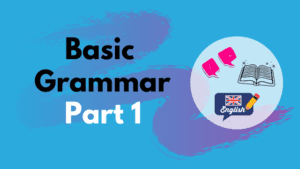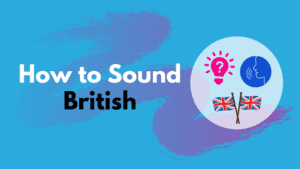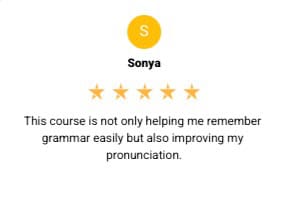IELTS Speaking Topics and Questions (with answers)
👇 Take this lesson with you! 👇
Table of Contents
Preparing for the IELTS Speaking Test can feel overwhelming, especially with so many possible topics that could come up during the exam. To help you succeed, I’ve compiled a list of common IELTS speaking topics and questions, along with some example answers to give you a clear idea of what to expect.
Why Practice Common IELTS Speaking Topics?
The IELTS Speaking Test is designed to evaluate your ability to communicate clearly and effectively on a wide range of topics. By practicing common IELTS speaking questions, you not only improve your fluency but also become more confident in discussing different topics, which ultimately helps you achieve a higher band score.
Frequent IELTS Speaking Topics
The topics in the IELTS Speaking Test are often related to everyday life, general experiences, and opinions. Here are some of the most common IELTS speaking topics you should prepare for:
- Family and Relationships
- Education and Learning
- Travel and Holidays
- Technology and Social Media
- Hobbies and Free Time
- Work and Career
- Health and Well-being
- Sports and Leisure Activities
- Culture and Festivals
- Environment and Nature

Common IELTS Speaking Questions and Model Answers
Here are some common IELTS speaking test questions you might be asked, along with model answers to help guide your preparation.
Topic: Education
Part 1 Question: What was your favourite subject in school?
My favourite subject in school was history. I loved learning about different civilisations, such as ancient Egypt. It was so interesting to see how people lived back then, what drove them, and how those events have shaped the world we live in now.
Part 3 Question: Do you think education is important for success?
Definitely! I think it’s really important for success. It gives us the building blocks and essential skills we need for our future careers. That said, I think education focuses more on knowledge and so we still need to develop other skills, you know like team work, leading others and the like. I guess we can pick these up in other activities like playing certain sports or joining clubs after school.
Topic: Travel and Holidays
Part 1 Question: What kind of vacations do you prefer?
I love holidays where I can explore new cultures. I like visiting places with rich traditions and interesting local food. Last year, for example, I went to Japan, and I loved the local cuisine. The sushi was to die for!
Part 3 Question: Do you think people should travel more to understand the world better?
Yes, I think travelling is an amazing way to learn about other societies and cultures. I think when you travel, you get to see different ways of life, try new foods, and meet people whose viewpoint may differ from your own, and if you want, can make you more open-minded.
Topic: Technology
Part 1 Question: What technology do you use to help you study?
I mainly use my laptop and smartphone to study. My laptop for accessing online courses and assignments from my teachers, and my phone is handy for quick research and I have some study apps that I use on the go.
Part 3 Question: Do you think young people use technology too much?
Yeah, I think young people definitely use technology a lot, maybe too much, especially their phones. They seem to be on them 24/7, either for studying or scrolling relentlessly through social media. I mean technology is super useful, but it’s important to find a balance so it doesn’t affect our real-life relationships or health.

Topic: Health and Well-being
Part 1 Question: What do you do to stay healthy?
To stay healthy, I try to eat a balanced diet and exercise regularly. I usually go for a run in the morning, and I also do yoga a few times a week. It helps me stay fit and is great for managing stress. I also make sure I get enough sleep and drink plenty of water.
Part 3 Question: How can governments encourage people to lead healthier lifestyles?
I guess governments can really help people live healthier lives by running public awareness campaigns and also maybe providing things like parks and sports centres. In addition to running campaigns, they could also regulate ads for unhealthy foods, You know, like those fast foods ads that are often shown when kids are watching tv and they could also make healthier food options cheaper, maybe by offering subsidies.
Topic: Culture and Festivals
Part 1 Question: What is your favourite festival in your country?
My favourite festival hands down, is Lunar New Year. So, this is a time when families get together to celebrate, share great food, and also enjoy different cultural activities like, well where I live we have lion dances. Most of all it’s a time to reconnect with relatives.
Part 3 Question: Do you think festivals are important for society?
Yes for sure. I think festivals are really important for society because they bring people together and help keep our cultural traditions alive. So many traditions are being lost, and festivals keep them afloat! For example, in the UK we still celebrate Bonfire night, so we don’t forget an important historical event in our history. What’s more, I’d say festivals just let people take a break from their daily routines – which is all important in today’s stressful society.
Topic: Environment and Nature
Part 1 Question: Do you like spending time in nature?
Yes, I do. It’s really calming and a refreshing change. Whenever I have some free time, I like to go hiking or visit a park. Most of all, being in nature helps me disconnect from technology and it can reduce my stress.
Part 3 Question: What can individuals do to help protect the environment?
People can make a big difference by adopting eco-friendly habits like reducing waste and recycling. These practices are quite widespread but not everyone is doing it. So a first step might be segregating rubbish at home. Other simple actions like avoiding single-use plastics and saving water can also help. think it’s all about making small, conscious choices every day to protect the environment.

Tips for Practicing IELTS Speaking Questions
1. How to use Model Answers
- Try and answer the question yourself.
- Read or listen to a model answer and learn some of the key phrases there.
- Try and give your own answer using one of the new words or phrases you have learnt.
- Try answering the question several times, but give a different answer each time; this will help you build your flexibility which is key to get a band 7 or above in IELTS Speaking.
2. Record Yourself
Practice speaking on different topics and record yourself. Listening back can help you identify areas to improve, such as pronunciation or grammar.
3. Expand Your Vocabulary
4. Practice with a Partner
If possible, practice with a friend or join an online study group. Practicing with someone else can give you confidence in answering questions spontaneously.
5. Stay Calm and Go With the Flow
If you don’t understand a question during the IELTS test, it’s okay to ask for clarification. The important thing is to stay calm and keep talking without long pauses.

Boost Your IELTS Speaking Practice
If you want more guided practice, check out my free IELTS Speaking Course where I provide even more topics, model answers, and tips to help you ace the test. You can join here.
Conclusion
Practicing common IELTS speaking questions and familiarising yourself with the typical topics can significantly boost your confidence and performance on test day. Remember, the key is to stay relaxed, be prepared, and speak as naturally as possible.
What about you? Which IELTS speaking topic do you find most challenging? Let me know in the comments below, and let’s work on it together!
Improve your Speaking Skills with this Free Course
Crack IELTS Speaking Part 1
Learn to Speak with Confidence in Part 1 of Your IELTS Test!
⭐️⭐️⭐️⭐️⭐️
‘It’s such a great course. I’ve learned so many usages for speaking part 1.’
Zu Htet






1 thought on “IELTS Speaking Topics and Questions (with answers)”
Thank you so much!